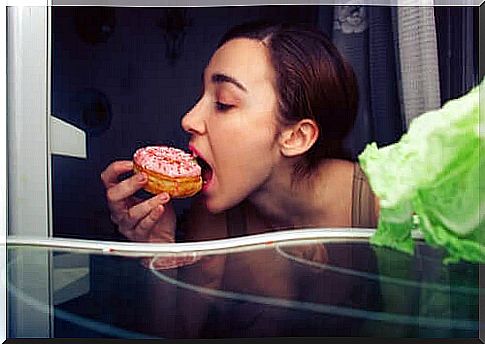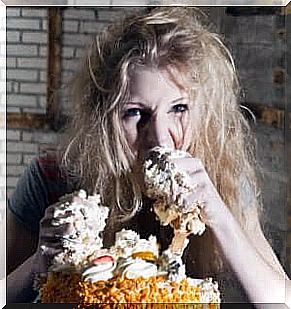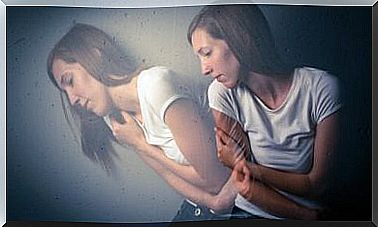Why Do You Eat More When You Are Stressed?

Why do you eat more when you are stressed? The relationship between stress and food has a long history. Stress affects many people around the world. At the same time, society demands that we know how to resolve emotional and social issues at a rapid pace.
Hans Selye was the first to define stress in 1926 as a “non-specific response from the human body to all demands”. The body responds in a similar way to everything it considers stressful, no matter what causes it.
Because of this, so when there is a lot of physical or mental stress, your body suffers from physical, biological and hormonal changes.
Almost all of your organs are part of this process. This includes the brain, nerves, heart, stomach and muscles. Thus, an excessive activity is created in the central nervous system and the endocrine and immune systems. This produces a number of different hormones such as adrenaline, norepinephrine and cortisol.

What causes stress?
Stress occurs due to two factors: external causes; financial, emotional or work-related problems and internal causes; pain, illness or psychological problems.
Experiencing stress for a long time can negatively affect your health. It makes it easier for pathologies to gain a foothold in the body and increases the risk of suffering from eating disorders, such as eating more when you are stressed.

Why do you eat more when you are stressed?
Stress can change your appetite and hunger. In the same way, it creates a dissociation between appetite (mental) and hunger (organic).
Wanting to eat more or not depends on the body’s chemistry and circulatory changes. As well as impulses that are sent to the midbrain from other organs in the body.
Emotional hunger causes you to eat more in response to emotions, especially negative emotions. The main signs of this are:
- obsession with food
- the use of food as a reward
- compulsive eating
- continued consumption despite feelings of satiety
- weight changes
- inability to identify why one is eating
- lack of link between psychological signs of satiety and hunger
- unconsciously binge eating.

Eating more when you are stressed affects your body
When they are stressed, some people eat foods high in fat, calories, sugar and salt. They simply eat significantly more when they are stressed.
Behaving in this way for a long time can have side effects on your health and can not only lead to you becoming overweight or obese, but it can also increase the risk of you suffering from the following:
- hypercholesterolemia
- Hypertension
- hypertriglyceridemia
- cerebral haemorrhage
- heart disease
- heart attack
- muscle problem
- breathing difficulties
- cancer
- diabetes
- insomnia
Some studies
In a study conducted by Lattimore and Caswell at the University of Liverpool, they explain why people who go on a diet eat when they are stressed. The authors believe that:
“These people put so much energy into controlling their biological signals that they do not have enough resources left to deal with everyday problems. This causes those who become stressed to lose control, and if they have food on hand, they eat it. They are also so used to ignoring their bodies that they do not notice or misinterpret the signals associated with struggle or flight. ”
In another srudie, from the University of Leeds in the UK, Laitinen and Sovio conclude that nervous tension leads to harmful changes in eating, which in turn leads to unhealthy eating behaviors. In the words of the researchers:
“People who have the greatest tendency to eat under stress are emotional eaters who are more sensitive and who tend to turn to food as an escape from self-awareness. When they feel anxious or emotional or feel bad about themselves, they try to avoid these negative emotions by focusing their attention on food. ”









